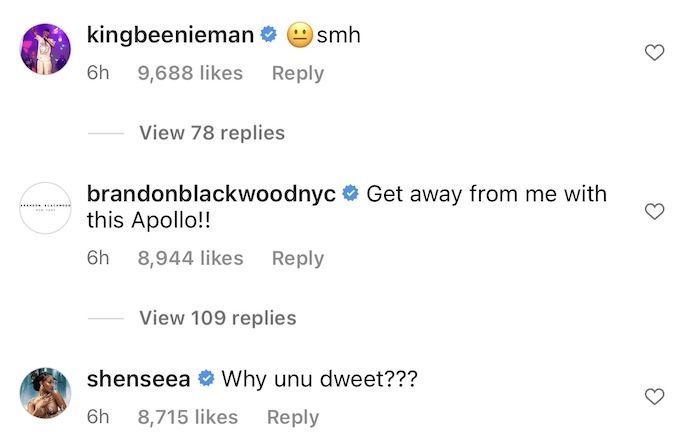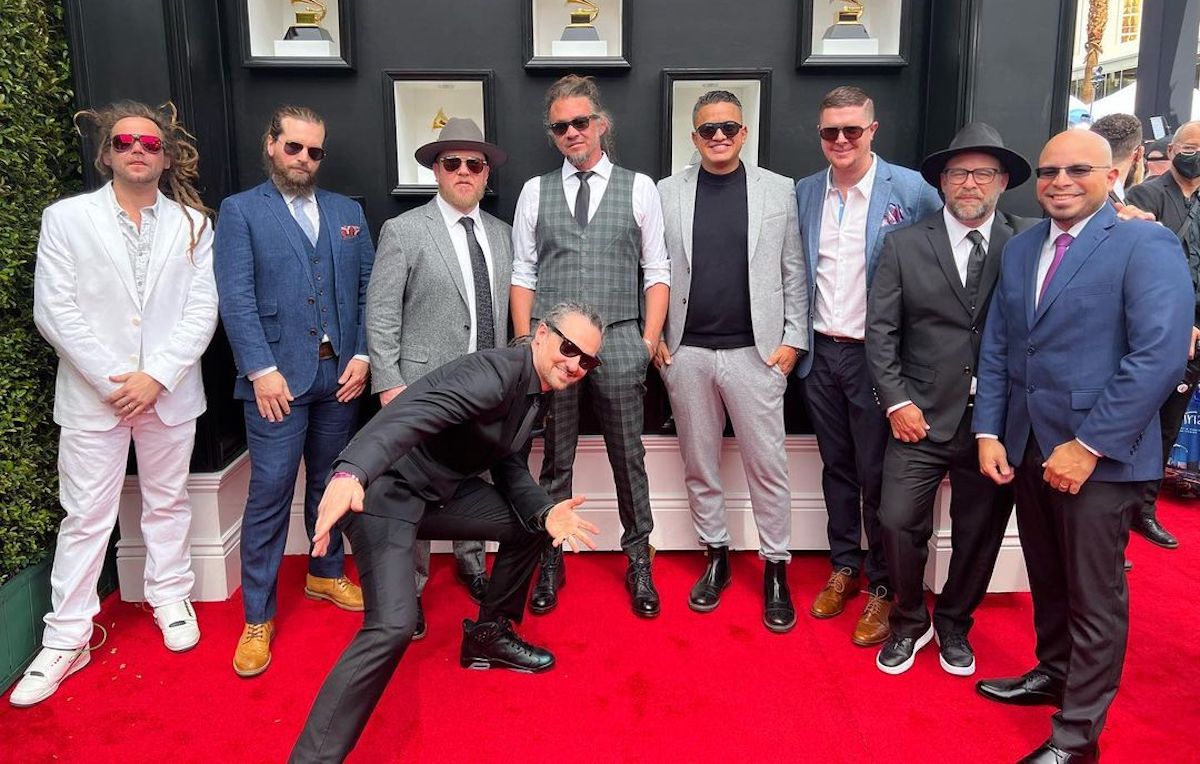American band SOJA winning this year’s Reggae Grammy put the local Jamaican music industry into focus as stakeholders and fans react.
Reggae Music fans are not happy with this year’s selection of the Grammy’s Best Reggae Album award winner as they drag the winner SOJA online. Usually, the winner of the category is celebrated, but this year fans are sour about the Grammy’s choice as many called the selection racist, given that Reggae’s origin is from Afro-Jamaican culture and Jamaicans on the nominee’s list were overlooked.
This year’s nomination list included albums from several popular Jamaican artists, 10 by Spice, Live N Livin by Sean Paul, Pamoja by Etana, Royal by Jesse Royal, Positive Vibration by Gramps Morgan.
‘Beauty in the Silence’ by SOJA was the only entry by a non-Jamaican group of mainly white men. The selection has been viewed as a snub to Jamaican artistry and the genre developed by Jamaicans.
The GRAMMY is in its 64th year, but the Best Reggae Album category was only added 37 years ago in 1985. At that time, Reggae music was a widely accepted genre of music made popular by the likes of Bob Marley, Peter Tosh, Black Uhuru, Burning Spear, Toots and the Maytals, Dennis Brown, and a slew of others.
The category was originally called the Grammy Award for ‘Best Reggae Recording’ and was eligible for songs or albums but was changed in 1992 to Best Reggae Album, and in 2002 the category was changed to also award engineers, mixers or producers along with the performing artists.
According to the Grammy website, eligible works must be vocal or instrumental reggae albums “containing at least 51% playing time of newly recorded music”, including roots reggae, dancehall, and ska music. How they determine if the music is roots reggae, dancehall or ska is unclear, as well as who the members on the committee that vote on the winner are.
Previous winners of the Best Reggae Album category include the legendary Jimmy Cliff, Bunny Wailer, Sly and Robbie, Peter Tosh, Beenie Man, Shaggy, Ziggy Marley and the Melody Makers, Sean Paul, Damian Marley, Stephen Marley, Morgan Heritage, Buju Banton, and others. Ziggy Marley, one of the sons of Bob Marley, holds the record for the most wins, with seven Grammys as of 2017.
In the history of the award, no non-Jamaican has ever won the award, and fans of the genre are in uproar at the GRAMMY, which they accuse of ‘whitewashing’ the genre.
Additionally, many have also criticized the quality of SOJA’s album. Among them is previous GRAMMY winner Beenie Man who commented “smh”, at the announcement of SOJA’s win while GRAMMY nominee Shenseea asked, “Why unu dweet”, while she later reacted in an Instagram Story where she called the selection “disrespectful.”

Dancehall artiste Popcaan also shared eight laughing emojis at an Instagram Story he reposted, which read: “I can’t believe they won a Grammy for best ‘Reggae’.”
The poster shared a video where one of the vocalists from SOJA can be heard shouting “Jah Rastafarianism,” “fire pon Babylon and fire pon a batty boy.”
Some fans have called SOJA’s music a mockery of indigenous Jamaican music and the spoken language of Jamaicans, Patois.
“The mockery is mad disrespectful,” one person commented on Instagram at the incorrect use of the language by SOJA.
“This is a slap in the face for our music and culture. Quite disappointed but more so offended,” another person wrote.
One point to note is also the use of the phrase “batty boy,” which is a derogative term for gay men, is prominent in SOJA’s album. In 2010, there was a huge uproar when Buju Banton won the award, and he was later threatened with boycotts after U.S gay rights groups condemned him for the use of the words.
There have been many discussions online, including from some of the industry’s top leaders who have called for quick changes to ensure that the genre is authentically represented.
Some of the many suggestions have included the move to include Jamaicans who are producing Reggae and Dancehall music, the artists and other industry officials to sign up and be a part of the Grammys voting process to ensure that the authenticity of Reggae music is preserved.
Like many critics before, including Nicki Minaj, Drake, and The Weeknd, who called the Grammys racist for only recognizing white talent and calling for a replacement of the awards show, Jamaican media personality Dahlia Harris also added her opinion on the selection of SOJA.
“We need our own Reggae Awards in Jamaica. I know the challenges from past shows, we can learn from that. Sounds like a project for Min. Edmund Bartlett. We want to celebrate our people, visitors would come to rub shoulders with their fav Reggae artists. Let’s do it!” she said.
While SOJA has been celebrating their win, many disgruntled Reggae fans feel that the other albums by Sean Paul, Etana, Gramps Morgan, Jesse Royal, and Spice were far more deserving.
“People who are hating on Soja winning best Reggae album either 1. Don’t know any reggae other than bob marley, 2. Have never listened to any of their music,” one person said in defense of SOJA.
SOJA, as the winner, has awakened renewed calls by Jamaicans to stamp and own reggae music as a Jamaican product. However, legally, a music genre cannot be copyrighted since it is an idea, and only expressions would qualify for protection. There could be a loophole to see if the music can be registered as a Geographical Indication, but so far, the law in that area has not developed beyond recognizing GI products.
Geographical Indications (GI) is an IP right used on products that have qualities or characteristics attributable to a specific geographical origin. One popular GI is Scotch whisky. There are 65,000 GIs registered in the world, but none relate to music.
In the same vein, one of Jamaica’s foremost scholars, Dr. Donna Hope, Director of the Institute of Caribbean Studies and the Reggae Studies Unit and author of the book ‘International Reggae: Current and Future Trends in Jamaican Popular Music’, in an invited comment shared that Reggae is a global genre.
However, the sentiments shared by Jamaicans locally are something that artists and others in the genre need to fix.
“It’s a North American award. One needs membership in NARAS to have voting rights. The voting members are the ones who decide on the winners and many times the winners have to have some networking or image visibility so they can resonate with the Grammy committee,” she began.
She added, “We must avoid the nostalgic and emotional turn. The Grammy win isn’t about our local [Jamaican] divisive arguments about “good music vs bad music” or “x-rated music vs conscious music”. It’s not about the fact that the artistes aren’t “sticking to their roots”.
Shabba Ranks won two Grammys back-to-back in 1992 and 1993 for his Dancehall albums. His team ensured that he was produced and marketed properly and that the NARAS voters knew about him and his work.”
The National Academy of Recording Arts and Sciences, or the NARAS, is a not-for-profit organization that comprises and represents a myriad of music makers of all genres.
To become a member, an applicant needs two “strong recommendations from peers in the music industry. Once the Academy has received your recommendation, you’ll be questioned further about your career and your involvement in the music industry. Once accepted, you will then become part of a committee for the specific award to match the corresponding industry you are part of.
Meanwhile, the GRAMMY has not responded to the backlash, but this is not the first controversy regarding the Best Reggae Album category.
Around 2018, there were criticisms that there was some conspiracy between the Marleys and figures on the Grammy committee, which ensured that a Marley was always the winner of the category. Since then, no Marley has won the award.
